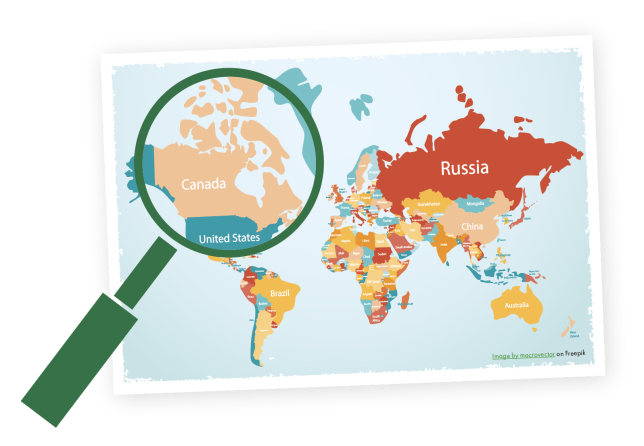Kanada: Indigener Protest gegen geplante Pipeline
aus Parents-Newsletter #43 (September 2025)

Kanada ist flächenmäßig der zweitgrößte Staat der Erde, hat jedoch nur 40 Millionen Einwohner. In den vergangenen Jahren hat sich Kanada mindestens doppelt so schnell erwärmt wie der Rest der Welt. 2023 gab es hier die bisher größte Waldbrandsaison. Mehr als 15 Millionen Hektar Wald verbrannten. Auch 2024 und 2025 mussten zehntausende Menschen vor den Flammen fliehen. Die indigene Bevölkerung Kanadas ist von den Bränden überproportional stark betroffen.
Dennoch setzt Kanada weiterhin auf fossile Energie. Auch hierbei sind indigene Völker die Leidtragenden. Die insgesamt 670 Kilometer lange Pipeline des kanadischen Unternehmens Coastal GasLink (CGL), einer Tochtergesellschaft von TC Energy, verläuft quer durch das angestammte Land der Wet’suwet’en Nation, einer indigenen Bevölkerungsgruppe in Kanada. Die Auswirkungen dieses Bauprojektes bedrohen Land, Wasser, Menschen und Klima.
Seit Jahren protestieren indigene Völker vergeblich gegen den Bau der Pipeline, versuchen mit gewaltlosem Widerstand ihr Land und das Klima zu schützen und gegen das Verhalten der Polizei vorzugehen, die die Proteste unterdrückt. Ein Richterspruch bestätigte 2025, dass die Grundrechte der kanadischen Charter of Rights and Freedoms durch das Verhalten der Polizei verletzt wurden. Trotzdem bleiben die Aktiven weiterhin bedroht. An der Spitze die Bewegung stehen Freda Huson und Molly Wickham (siehe Links unten). Der Kampf in Kanada zeigt, wie eng die Rechte indigener Völker und Klimaschutz ineinandergreifen.
English version:
Canada: Indigenous protest against planned pipeline
Canada is the second-largest country in the world in terms of area, but has only 40 million inhabitants. In recent years, Canada has warmed at least twice as fast as the rest of the world. In 2023, Canada experienced its largest wildfire season to date. More than 15 million hectares of forest burned. Tens of thousands of people were forced to flee the flames in 2024 and 2025. Canada‘s indigenous population has been disproportionately affected by the fires.
Nevertheless, Canada continues to rely on fossil fuels. Indigenous peoples are the ones who suffer most in this regard. The 670-kilometer pipeline, owned by the Canadian company Coastal Gas-Link (CGL), a subsidiary of TC Energy, runs right through the ancestral lands of the Wet‘suwet‘en Nation, an indigenous people in Canada. The impacts of this construction project threaten land, water, people, and the climate.
For years, indigenous peoples have been protesting in vain against the construction of the pipeline, attempting to protect their land and the climate through nonviolent resistance and taking action against the police‘s repression of the protests. A court ruling in 2025 confirmed that the fundamental rights of the Canadian Charter of Rights and Freedoms had been violated by the police‘s conduct. Nevertheless, activists continue to face threats. Freda Huson and Molly Wickham (see links below) are leading the movement. The struggle in Canada demonstrates how closely the rights of indigenous peoples and climate protection are intertwined
Rike, Newsletter-Team
Weitere Informationen:
https://www.amnesty.de/briefmarathon-2024-wetsuweten-nation-kanada
Further Information:
https://www.amnesty.org/en/documents/pol32/8285/2024/en/
https://rightlivelihood.org/the-change-makers/find-a-laureate/freda-huson/
https://spiritaligned.org/cultural-atlas-circle-3/molly-ann-wickham/